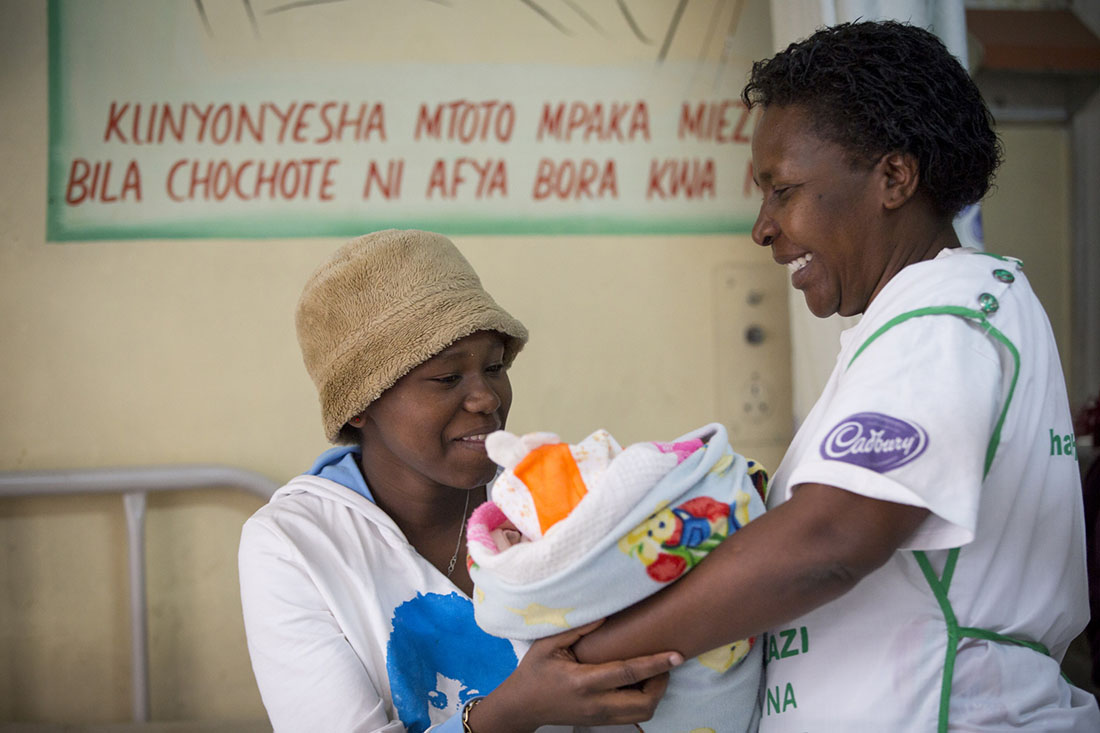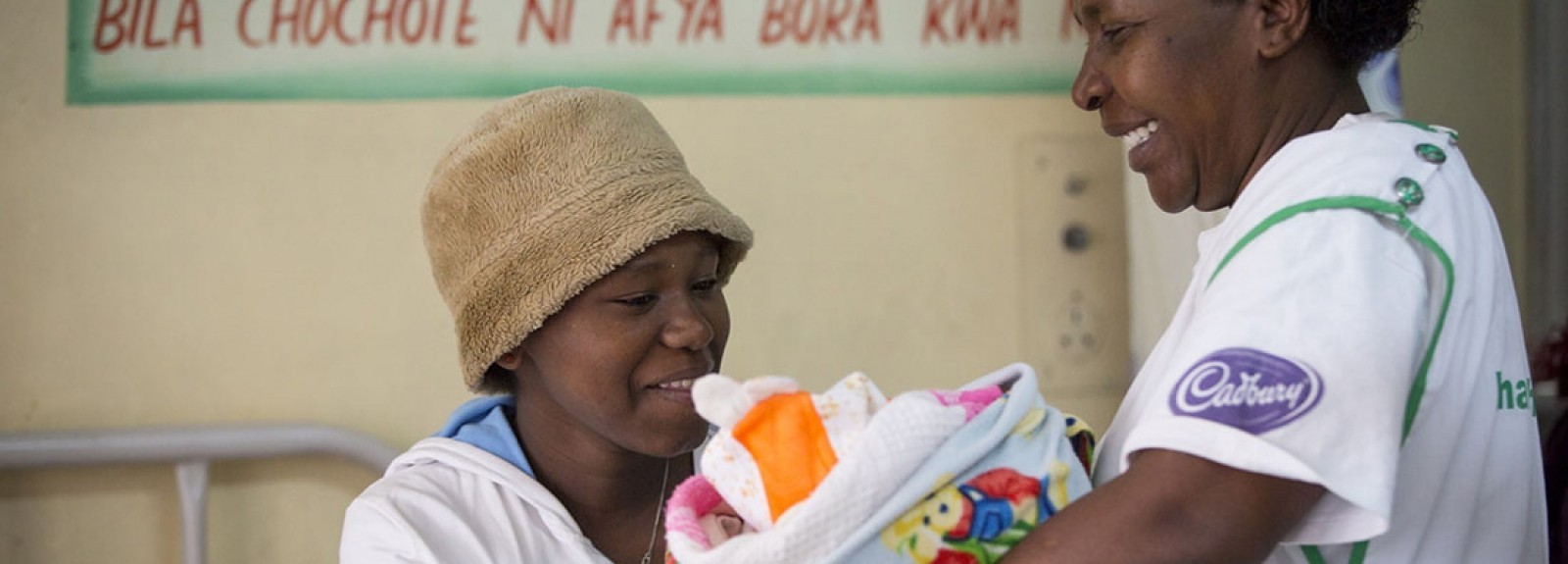
P
ORT-AU-PRINCE – At L’Hôpital Nos Petits Frères et Soeurs, tiny cries echo in the hallway.
In the intensive care unit, an impossibly small baby, wrapped in a Winnie the Pooh blanket, rests on a full-size hospital bed. The infant is hooked up to at least four different IV lines and an oversized nasal tube. A woman stands at the bedside so she can be close enough to wipe the child’s mouth if needed.
The new life is one of about 200 that are delivered in the hospital each month, according to Executive Director Dr. Jacqueline Gautier.
“We’re busy,” she said.
The babies and their mothers need clean and sterile birthing supplies, such as absorbent underpads, gauze, scalpels and umbilical ties, to prevent infection. And, in the hospital with the French name that means “Hospital of our Little Brothers and Sisters,” those items are ready and waiting, thanks to donations of Safe Motherhood Kits™ from IMA World Health. IMA has provided more than 30,000 kits for women in developing nations, such as Haiti, South Sudan and the Democratic Republic of Congo. They are one way IMA works to reduce—and contribute to efforts to eventually end—preventable maternal mortality, a goal shared by the global health community.
The targets and strategies for ending preventable maternal mortality, a global goal abbreviated as EPMM, focus on “eliminating significant inequities that lead to disparities in access, quality and outcomes of care within and between countries,” according to the World Health Organization. The global target is for all countries to reduce their maternal mortality ratio by at least two-thirds of their 2010 baseline level by 2030—an “ambitious yet feasible” goal, the EPMM Executive Summary states.
IMA contributes to these efforts by helping health systems provide effective facility and community-based maternal and child health packages. In South Sudan and the Democratic Republic of Congo, IMA works with communities to encourage antenatal care and deliveries at health facilities, where IMA-trained health care workers provide skilled attendance at birth.
And in Haiti, IMA continues to provide hospitals, like L’Hôpital Nos Petits Frères et Soeurs, with supplies that will ensure a safe birthing atmosphere for a new mother and her baby.
Because a woman shouldn’t have to worry that she or her baby might die during childbirth. She should only be thinking about how she will regain her strength and care for her newborn, which is the start of a new, healthier generation.


